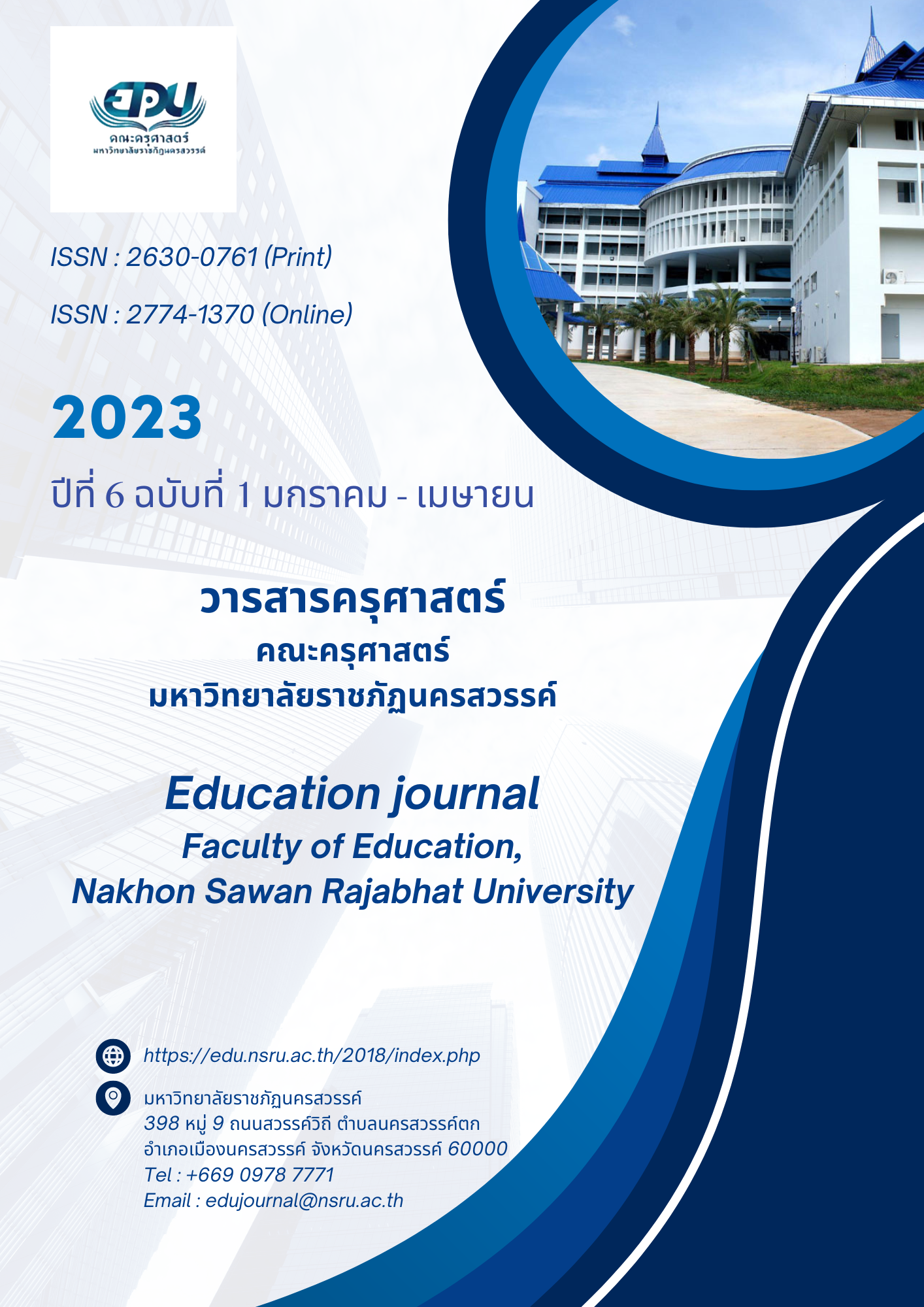Administrators with New Roles in Education Administration in the Future
Main Article Content
Abstract
Nowadays, new technologies have played an important role in changing the world which may be called “disruptive technologies”. They affect the lives of all people, making the world in a state of volatility, uncertainty, complexity, and ambiguity. The objective of this article is to present perspective on the new role of administrators to the changing world in three key areas: 1) Self-improvement to be aware of the changing world, 2) Development of the ability to manage learning and 3) Assessing learning outcomes of learners. The goal is to transform the concept of traditional learning administration into a learning administration that aims to improve the learners' ability to live in a dynamic world. The recommendations for Thai administrators are as follows: 1) developing themselves to be knowledgeable in various fields, knowledge and essential skills in the future for learners, 2) transforming learning management into a format that leads to the digital world and 3) applying holistic measurements and assessments that encompass knowledge, skills/competencies and desirable characteristics of the learners by using authentic measurement and assessment.
Downloads
Article Details

This work is licensed under a Creative Commons Attribution-NonCommercial-NoDerivatives 4.0 International License.
References
งานบริหารทรัพยากรสุขภาพ คณะแพทยศาสตร์ศิริราชพยาบาล มหาวิทยาลัยมหิดล. (2563). การกำหนดเป้าหมายด้วย SMART goals. สืบค้นเมื่อ 8 ตุลาคม 2565, จาก https://www.si.mahidol.ac.th/th/division/um/knowledge_detail.asp?id=179.
วิโรจน์ สารรัตนะ. (2556). กระบวนทัศน์ใหม่ทางการศึกษากรณีทัศนะต่อการศึกษาศตวรรษที่ 21. กรุงเทพฯ: หจก.ทิพย์วิสุทธิ์.
ศิริวรรณ ฉัตรมณี รุ่งเรือง, และวรางคณา ทองนพคุณ. (2557). ทักษะแห่งศตวรรษที่ 21 ความท้าทายอนาคต, เอกสารประกอบการอบรม. สืบค้นเมื่อ 10 ตุลาคม 2565, จาก http://wwwqlf.or.th.
สมเสมอ ทักษิณ, และภิญโญ วงษ์ทอง. (2563). การแก้ปัญหาอย่างสร้างสรรค์ (creative problem solving). นครนายก: สถาบันวิจัยพัฒนาและสาธิตการศึกษา มหาวิทยาลัยศรีนครินทรวิโรฒ.
สลิลนา ศรีสุขศิริพันธ์. (2555). ศาสตร์ คืออะไร. สืบค้นเมื่อ 8 ตุลาคม 2565, จาก https://www.gotoknow.org/posts/461639.
สำนักงานนวัตกรรมแห่งชาติ องค์การมหาชน. (2565). 15 สัญญาณเปลี่ยนอนาคตการศึกษา. สืบค้นเมื่อ 10 ตุลาคม 2565, จาก https://www.eef.or.th/infographic-180422/.
สำนักงานเลขาธิการสภาการศึกษา. (2560). แผนการศึกษาแห่งชาติ พ.ศ. 2560-2579. กรุงเทพฯ: พริกหวานกราฟฟิค.
_______. (2562). ครูไทยยุคใหม่สนใจดิจิทัล. กรุงเทพฯ: พริกหวาน.
สำนักงานเลขานุการของคณะกรรมการยุทธศาสตร์ชาติ. (2561). ยุทธศาสตร์ชาติ พ.ศ. 2561-2580. กรุงเทพฯ: สำนักงานคณะกรรมการพัฒนาการเศรษฐกิจและสังคมแห่งชาติ.
ไสว ฟักขาว. (2562). การจัดการเรียนรู้เพื่อส่งเสริมทักษะในศตวรรษที่ 21. กรุงเทพฯ: มหาวิทยาลัยราชภัฏจันทรเกษม.
อริญญา เถลิงศรี. (2562). Disruption: ทำลายล้างหรือสร้างโอกาส. สืบค้นเมื่อ 20 ตุลาคม 2565, จาก https://thaipublica.org/2018/06/seacdisruption/.
Baker, E. L., O’Neill, H. F., Jr., & Linn, R. L. (1993). Policy and validity prospects for performance based assessment. American Psychologist, 48, 1210-1218.
Greenstein, L. (2012). Assessing 21st Century Skills: A Guide to Evaluating Mastery and Authentic Learning. California, USA: Corwin.
New Zealand Ministry of Education. (2013). The education leadership model-ELM. Retrieved January 2, 2013, from http://www.Educationleadership.
Schaaf, R. L., & Jukes, I. (2019). A Brief History of the Future of Education: Learning in the Age of Disruption. (SAGE Publications Asia-Pacific Pte. Ltd). [Kindle version 5]. Retrieved 4 October, 2020, from http://www.amazon.com.


